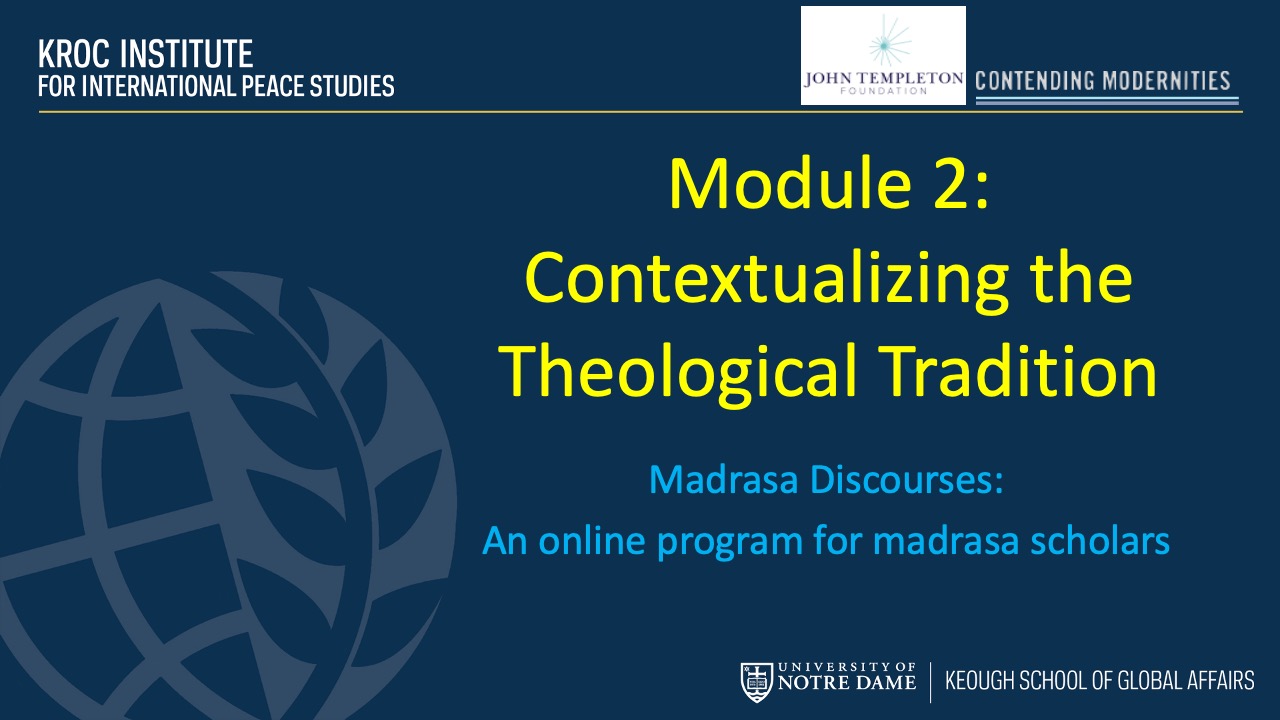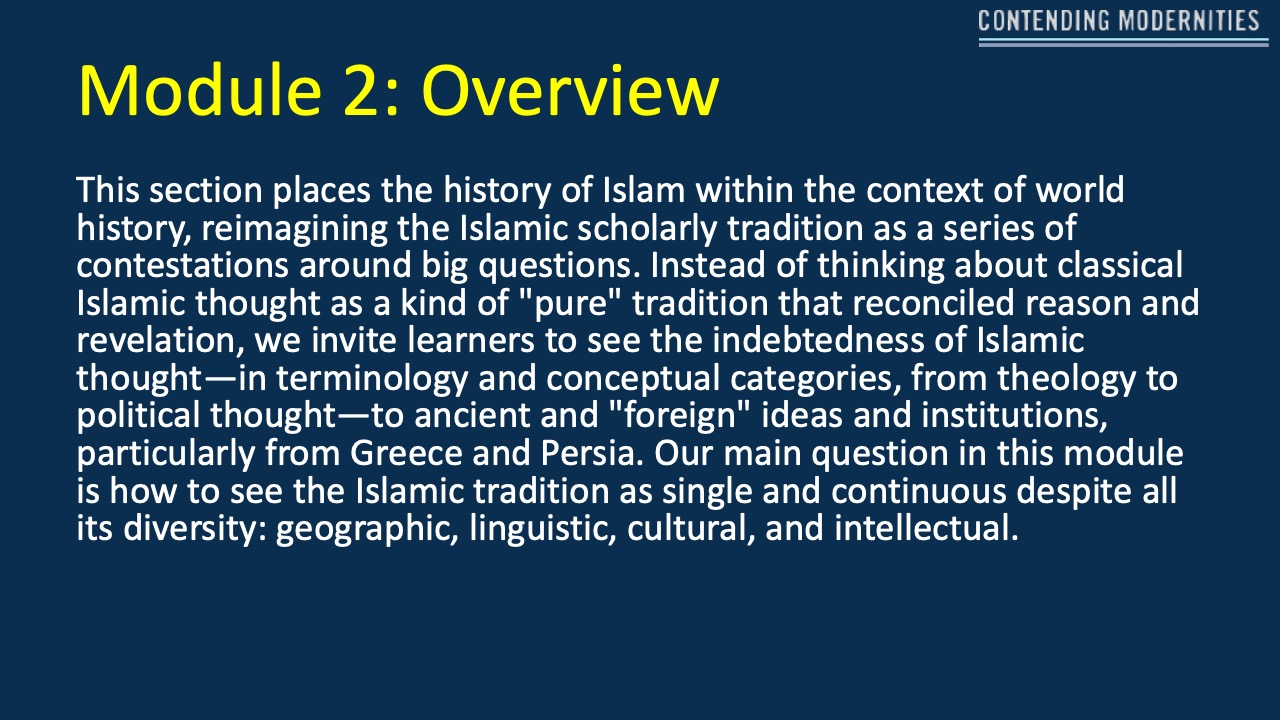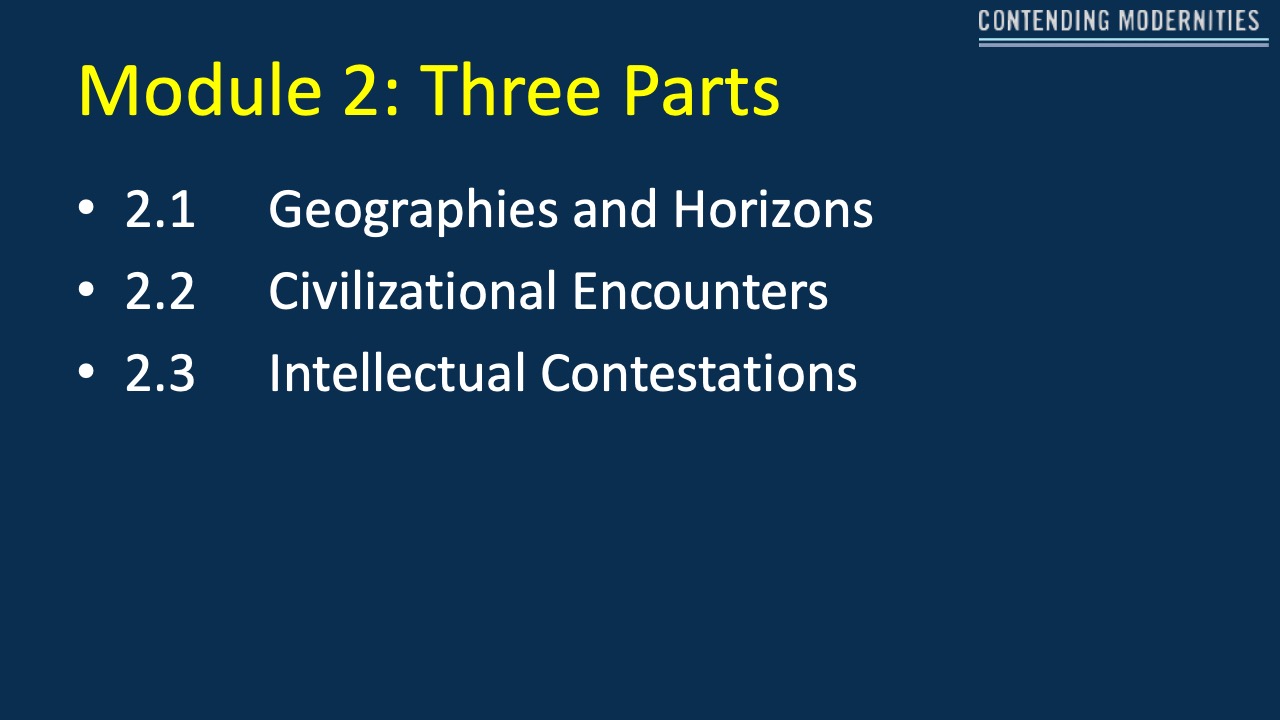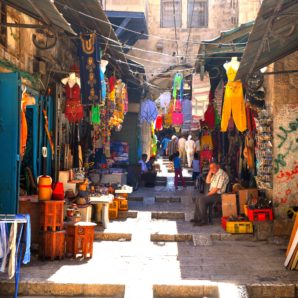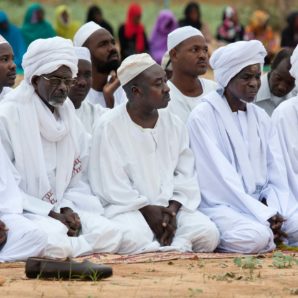The second module develops the theme of history and its relationship to philosophy by applying the concepts we have learned in Module 1 to Islamic history. The module is comprised of three parts. In the first part, students frame Islamic history within the context of world history. In the second, they are exposed to civilizational influences that impacted the formative period of Islamic intellectual history. Edward Said captures the spirit of what we hope to convey: “Partly because of empire, all cultures are involved in one another; none is single and pure.” The third part presents the tradition as a series of intellectual contestations by looking at the intellectual disputes between great scholars over the course of generations and centuries. This section reconceptualizes tradition as a rope with disparate strands that are woven together to form a continuum, with each strand representing a scholar or generation that has passed on. The key questions of this module are:
- If the very tradition was formed out of a multiplicity of cultural and intellectual resources, what does it mean to claim that there is such as thing as a uniform or pure expression of Islam?
- If scholars of the past had a dynamic relationship with intellectual currents that stemmed from outside Islam, how are Muslims engaging contemporary knowledge traditions today?
- If creativity and contestation define the scholarly tradition that we inherit, should a healthy living tradition today be characterized by similar characteristics?
MODULES
2.1 Geographies and Horizons
How ought we place the history of Islam within the context of world history? In this section we will discuss the rise of Islam in the post-Axial age and the importance of local context in the generation of values and beliefs. (Ah Wei/“Enjoy the Sunshine”)
Read More ⟶2.2 Civilizational Encounters
To what extent were foreign influences influential in the shaping of classic Islamic thought? In this section, we look into how Greek thought affected islamic philosophy and science and how Persian culture affected islamic political thought. (Lazhar Neftien/“Old Jerusalem”)
Read More ⟶2.3 Intellectual Contestations
Is the Islamic tradition more than a mere set of orthodox doctrines transmitted from generation? In this section, students will read debates between logicians and compare positions on the question of eternity of the world with theologians. (UNAMID/“Eid ul-Fitr...")
Read More ⟶


